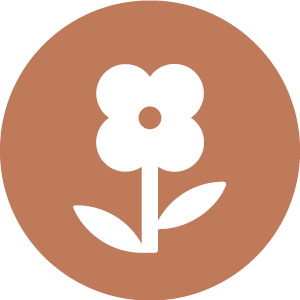Shared Care for Allergy Bulletin March 2025 - Edition 12
Welcome to the 12th Edition of the Shared Care for Allergy Bulletin. This Bulletin keeps you up to date on the latest developments in the Shared Care for Allergy project. This project is a collaborative effort led by the National Allergy Council, the Australasian Society of Clinical Immunology and Allergy (ASCIA), and Allergy & Anaphylaxis Australia. Our organisations are working together to improve access to quality care for Australians living with allergic conditions through our 2025 – 2026 Implementation Roadmap.
Latest progress
 MBS item number for food challenges
MBS item number for food challenges
The March application for a Medical Benefits Schedule (MBS) item number for supervised oral food challenges has progressed, with the public consultation period closing on 11 July 2025. The consultation reports supporting the ASCIA application confirm the social and economic benefits of having a Medicare item for supervised oral food challenges, for both the healthcare system and for people with suspected food allergy.
 ASCIA e-training promotion
ASCIA e-training promotion
From May to mid-August 2025 ASCIA promoted their allergy and anaphylaxis e-training courses and educational resources at eight major health professional events across Australia, attended by over 13,000 doctors, nurses and pharmacists. ASCIA’s anaphylaxis e-training course for health professionals is a recognised CPD activity by the Royal Australian College of General Practitioners (RACGP), the Australian College of Rural and Remote Medicine (ACRRM), the Pharmaceutical Society of Australia (PSA) and the Australian Primary Health Care Nurses Association (APNA).

New allergy training pathways and networks
There are five ASCIA-funded pilot initiatives which are facilitating the upskilling of more than 180 health professionals with a focus on rural, regional or remote areas. These pilots will be evaluated by March 2026.
Associateship of Clinical Allergy
Five rural general practitioners (GPs) and five rural paediatricians are being trained through the Associateship of Clinical Allergy to provide care for patients with allergic conditions in their communities. Each Semester, trainees participate in a two-day in person workshop to gain hands-on skills, followed by weekly online learning, interactive case-based webinars and end of unit assessments. Trainees are supported by two experienced clinical supervisors who provide clinical attachment and exposure to patient cases for the duration of a semester.
Food allergy and anaphylaxis e-training for psychologists
Allergy & Anaphylaxis Australia has worked with the Australian Psychological Society to create an online training course and practice guide to help psychologists better understand food allergy and anaphylaxis (caused by any allergen). They have also developed a resource for health professionals on when to refer someone with a food allergy or anaphylaxis to a psychologist. This resource is called 'Supporting individuals with food allergy and anaphylaxis: when a psychologist can help'.

Allergy education and support for diverse groups
Allergy & Anaphylaxis Australia with support from the National Allergy Council, launched the Understanding Allergy Care hub in May 2025 to help people with allergies better understand their care. The hub was promoted with a digital advertising and social media campaign resulting in 39,154 views of the 12 new webpages.
The Allergy & Anaphylaxis Australia National Allergy Helpline now has an interpreting service through TIS National. This means that people contacting the Allergy & Anaphylaxis Australia Allergy Educators can request instant phone interpreting in over 150 languages.

Increase awareness of patient and carer support organisations
ASCIA patient resources now link to patient and carer support organisations including Allergy & Anaphylaxis Australia. By June 2026, these links will also appear on all ASCIA health professional documents. The ASCIA homepage, which is visited over 250,000 times monthly, now features these links on its most prominent tile.

Eczema Connect® pilot
Allergy & Anaphylaxis Australia is continuing the Eczema Connect® pilot clinical trial with Perth Children’s Hospital and the University of Western Australia. This program gives parents education and support, with the aim of the program to improve their child’s eczema management and wellbeing, while they wait for an appointment with a dermatologist or allergy specialist at the hospital. Parents receive easy to understand, evidence-based information about eczema management by email. They can also get free phone and email support from an Allergy & Anaphylaxis Australia Allergy Educator. Since the trial began, 58 patients have joined.

MBS item number for drug challenges
Work is underway to develop an application for a new MBS item number for supervised challenges to test for antibiotic and nonsteroidal anti-inflammatory drug (NSAID) allergies. The aim is for ASCIA to submit the application to MSAC in November 2025. The application will highlight the important social and economic benefits of having an MBS item number for these challenges, for both the healthcare system and for people with suspected allergy to antibiotics or NSAIDs.

allergy assist® pilot
allergy assist® is a free, national online service that gives doctors specialist advice and support for allergic conditions. It was developed by the National Allergy Council, in partnership with the Australian College of Rural and Remote Medicine (ACRRM). allergy assist® started as a service for doctors working in rural and remote areas, but access has recently been expanded to include metropolitan GPs across Australia.
Through allergy assist®, GPs and rural generalists can send in de-identified questions or patient cases and receive advice from a clinical immunology/allergy specialist within 48 hours. The site also includes online learning modules, real-life education cases and resources. Regular educational webinars and question and answer sessions are presented by clinical immunology/allergy specialists on topics of interest.

Digital education and support programs for consumers
Allergy & Anaphylaxis Australia has Living with Allergy Guides which are a series of education emails (previously called journeys) that give digital education and support to people living with allergies. The aim is to help people manage their allergies well. The guides are for people who are newly diagnosed, or for anyone who wants or needs to review and improve how they manage their allergies. Each email links people to free phone and email support from an Allergy & Anaphylaxis Australia Allergy Educator as needed.
Health professionals can learn more about the Living with Allergy Guides and encourage their patients to join here Living with Allergy Guides for patients.
In May 2025, Allergy & Anaphylaxis Australia delivered a webinar on Oral Food Challenges, led by Dr Brynn Wainstein and Merilyn McArthur. All Allergy & Anaphylaxis Australia webinars are available to watch on their website.

Allergy Care and Education (ACE) nurse pilot
We are excited to share that the Allergy Care and Education (ACE) Nurse Pilot is now up and running. Seven rural and regional practice nurses have joined the pilot. Each nurse is studying the Professional Certificate in Allergy Nursing through the University of South Australia and have been connected with each other for ongoing networking and support. This course will give them the knowledge and skills to support people with conditions like food allergy, hay fever, eczema, and anaphylaxis. We will be collecting feedback and learning from their experiences to see whether nurse-led allergy clinics can improve access to allergy care in rural and regional areas.

National standards and guidelines for allergy
In June 2024, the National Allergy Council released the Transition of Care Standard: Effective Transition of Care from Paediatric to Adult Services. This standard sets out what good care should look like when young people with allergic conditions move from children to adult allergy services. A Transition Implementation Guide and Model of Care will be available soon on the National Allergy Council website. It will outline practical steps and guidance on how allergy services can be set up to provide safe, consistent care during the transition period.
Contact the National Allergy Council
To contact us, please email
Find out more about the National Allergy Council.
Stay informed about the National Allergy Council
Stay informed by remaining subscribed to our newsletters and follow us on social media via Facebook, LinkedIn or Instagram.

